2014 Environmental Merit Award Recipients
- Dedication
- Welcome
- Lifetime Achievement
- Ira Leighton "In Service to States"
- Individual
- Environmental, Community, Academia, & Nonprofit
- Governmental
- Business, Industry, Trade or Professional
- Federal Green Challenge
- President's Environmental Youth Award (PEYA)
- Presidential Proclamation 20th Anniversary of Executive Order 12898 on Environmental Justice
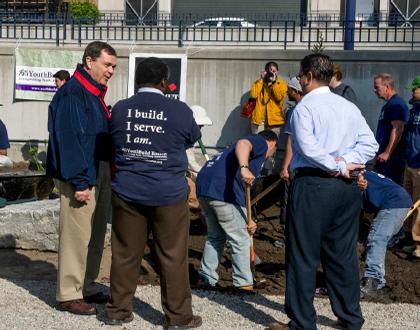
Dedication
Today's program is dedicated to EPA New England's former Deputy Regional Administrator and our dear friend and colleague Ira Leighton, who passed away in 2013. Ira truly loved the Environmental Merit Award ceremonies and deeply appreciated the environmental stewardship and commitment of citizens across New England.
Welcome
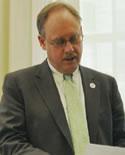
Welcome to the 2014 Environmental Merit Awards Ceremony
Congratulations to all of our 2014 Environmental Merit Award Recipients. You should be proud to be recognized for your environmental stewardship and dedication.
We live in a time where our environmental challenges are paramount, and yet, the struggle for adequate resources is evident. This past year has illustrated how tight our purse strings have gotten. And these conditions mean that all of us collectively in this room must come together, be creative and implement sustainable, cost-effective environmental solutions. I want to congratulate all of you because you have done just that, and I hope you will continue in that vein as we keep pushing forward on high priority issues like climate change.
Today is Earth Day, a fitting moment to congratulate our environmental stewards. It's also a moment to look ahead. Here in New England, we are leading the country in innovative and sustainable solutions to climate change. Our systems are vulnerable, and we must work together to assess that vulnerability and adapt to the already changing climate. With over fifty percent of our New England population living in coastal counties, we must focus our attention to reducing our environmental impact and adapting to changes ahead.
Keep up the good work, and congratulations.
Sincerely,
Curt Spalding
Regional Administrator, EPA New England
Lifetime Achievement

Joan Bothell
New England Lead Coordinating Committee, West Hartford
Joan Bothell has led the New England Lead Coordinating Committee for more than a decade, carrying out complex tasks to educate and spread awareness. Bothell, who works with the Healthy Environments for Children Initiative of the University of Connecticut Cooperative Extension Service, was a key part of the regional Don't Spread Lead Campaign for do-it-yourselfers, which included practices that were adopted nationwide. She developed a booklet, an animated video, facts sheets and a course for non-certified workers that she will market this year. Bothell also is working on a video to train and help various groups throughout New England deal with issues of lead contamination. Her dedication to eliminating lead poisoning and to educating the public has set an example across New England.
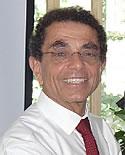
Dr. Ihab Farag
Professor emeritus at University of New Hampshire, Durham, NH
Ihab H. Farag has dedicated himself to instilling energy efficiency, renewable energy and pollution prevention concepts in students from high school to graduate school age. Farag's accomplishments extend beyond New England to an international arena. Farag started the NH Pollution Prevention Partnership of industry, government, academia, and the State Pollution Prevention Internship Program. He was director of this program from its 1993 founding until 2013 when he retired. It was the first of its kind in New England and has been teaching students and businesses across the region how to protect the environment while saving money through pollution prevention. Established by UNH, the Department of Environmental Services and EPA, the program has placed 135 students at 65 facilities and achieved significant environmental benefits, including more than $3.3 million a year, and millions of gallons of water in savings. The program has spread as far as Thailand, where more than 50 students and seven faculty members have been involved. In 1995, Farag received a commendation from the Coast Guard for starting a program to track hazardous material and for helping them comply with right-to-know laws. Farag became the first person in NH certified to teach CAMEO, or Computer Aided Management of Emergency Operations, and offered more than 30 related training workshops to more than 200 emergency responders. He helped bring in and train emergency responders from around the world, including El Salvador, Thailand, Egypt and Morocco. Farag was also a champion of EPA's Community Emergency Channel, helping students to assess building energy use in more than 40 New England towns. The presentations and reports of his students continue to be used by interns and communities around the region. Farag has always been a dedicated professor, going above and beyond to help students. He will be missed in the Pollution prevention community as he retires from UNH.
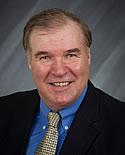
Bob Valair
Staples Inc., Framingham, Mass.
Bob Valair had a vision to create the Staples Energy Program. Finding a new idea is rare in large companies; successfully executing them is what really separates the dreamers from the entrepreneurs. Valair has delivered results that have driven substantial benefits for Staples and his industry. Valair led the pursuit of Staples as an Energy Star 500 Partner of the Year three times, and consistently has beaten his energy budget through significant reductions in energy use. Valair's presence on the EEI National Accounts advisory board, and his willingness to constantly coach his peers and suppliers shows his readiness to not only drive results for Staples, but also to further energy management across the industry. Valair continues to push Staples to great accomplishments, with the bar set even higher with a goal of 100 Energy Star facilities by 2016, and 25 percent reduction in energy consumption by 2020.

Jane Austin
Jane Austin has dedicated ten years to improving the health of Narragansett Bay, and the sustainability of its community. At Save the Bay she worked with the community, elected officials and other environmental organizations to push forward successful efforts on Climate Adaptation, wastewater management, public access and integrated environmental planning.
Jane was instrumental in creating the Coalition for Water Security and the Coalition for Transportation Choices. She exhibited exceptional leadership at the Environment Council of Rhode Island and the Narragansett Bay Estuary Program's executive committee. She championed legislation to phase out cesspools in Rhode Island, while serving on a task force that is currently addressing chronic wastewater management problems in the City of Warwick. She coordinated a broad, diverse coalition of groups to win statewide voter approval of the purchase of Rocky Point and other iconic shoreline access lands in Rhode Island. Coastal impacts from Climate Change have driven a lot of her efforts. She has been known to urge officials to resist building hardened structures because they can exacerbate erosion and deflect problems elsewhere along the shore. More importantly, she called on officials to develop a comprehensive strategy for dealing with rising sea levels and erosion instead of reacting in piecemeal fashion when pressing issues arise. That approach began soon after, when officials began working on what has come to be called the Beach SAMP (Special Area Management Plan).
Austin took on the issues with passion, perseverance and integrity, insisting that her colleagues at Save The Bay and in government tackle issues in a holistic and responsible manner. She was tenaciously insisted that environmental agencies to do their jobs and play by the rules, and focus on the long-term consequences of policies and decisions. Jane Austin is a great champion for the environment.
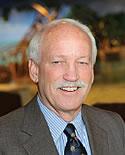
Bud Ris
Bud Ris has achieved tremendous respect for environmental stewardship and passion over his lifelong career in the field. He has been focused on environmental science and policy issues for years. From 1984-2003 he served as chief executive officer of the Union of Concerned Scientists, working to achieve practical solutions to environmental and national security problems. More recently, Bud has been focused on the great challenge of our time, Climate Change. From 1996 to 2003, Mr. Ris chaired a coalition of sixteen national environmental organizations founded to support international and domestic action on climate change. In 1997, he led the delegation of US NGO's to the international negotiations that culminated in the Kyoto Protocol. From 2004 to 2005, Mr. Ris was a Senior Fellow at the World Economic Forum in Geneva, Switzerland, where he led the Forum's G-8 program on climate change for UK Prime Minister Tony Blair.
Today, at the New England Aquarium in Boston, Bud Ris serves as President and CEO. He leads its pioneering programs on marine conservation extend from the Gulf of Maine to the Pacific Ocean, where it recently collaborated in the creation of one of the world's largest marine protected areas.
Mr. Ris currently serves on the City of Boston's Green Ribbon Commission and co-chairs the City's Task Force on Climate Preparedness. He was a member of the Climate Change Adaptation Advisory Committee convened by Massachusetts Energy and Environmental Affairs Secretary Ian Bowles. He currently serves on the boards of: A Better City, The Boston Harbor Association, the Sea Education Association, and the Phoenix Islands Protected Area Trust.

John and Kittie Wilson
Pleasant Lake Protective Association, New London, NH
John and Kittie Wilson are well-known to conservationists in New Hampshire as advocates for the protection of lakes, watersheds, wildlife and especially loons. The Wilsons work tirelessly and bring together others to collaborate in their work. John has been active in the Pleasant Lake Protective Association since the 1970s and now chairs its watershed committee. He was president for three terms, a weed watcher captain for 10 years, and served on the board of the NH Lakes Association. Kittie also has been involved in the association for more than 20 years, serving as board member and secretary, and currently as chair of its wildlife committee. After repeated nest failures of the Pleasant Lakes loon pair, John and Kittie worked with others to build two loon nesting rafts, both of which have hatched chicks. A retired elementary school teacher, Kittie continues as a passionate environmental educator. Perhaps most significantly, the Wilsons recently led the effort to pass a state law banning the use and sale of lead fishing sinkers and jigs weighing one ounce or less, which is important in protecting loons and 75 other species vulnerable to lead poisoning. As Sen. Kelly Ayotte said, "Outstanding and active citizens like the Wilsons represent one of the strengths of our state."
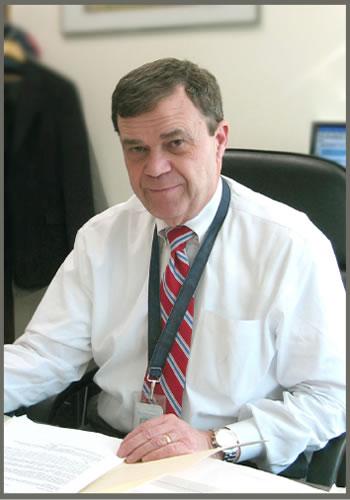 Ira W. Leighton, Jr.
Ira W. Leighton, Jr.1945-2013
Dedicated EPA public servant since 1972
"Over more than four decades of service, Ira's leadership brought innovative solutions to America's conservation challenge and he will be remembered for this commitment to making our environment safer and healthier."
- President Barack Obama
A true friend, a mentor and a lover of New England.
He will be missed.
Ira Leighton "In Service to States"
The New England Interstate Water Pollution Control Commission (NEIWPCC), the Northeast States for Coordinated Air Use Management (NESCAUM), the Northeast Waste Management Officials' Association (NEWMOA), in coordination with the New England state Environmental Commissioners and the United States Environmental Protection Agency, Region 1 (EPA) have initiated the Ira Leighton "In Service to States" Environmental Merit Award as a tribute to our long-time colleague and friend, Ira Leighton, who passed away in 2013, after serving forty-one years at the US EPA. Ira's dedication and passion for protecting the environment was evident to all who knew him. He was a constant presence in New England; a force who took ideas and made them actionable tasks that resulted in measurable improvements.
Saluting the Ira Leighton "In Service to States" Annual Award Recipient
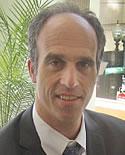
Ken Kimmell
During his tenure at MassDEP from January 2011 through March 2014, and his earlier tenure as General Counsel at the Massachusetts Executive Office of Environmental Affairs from 2007 through 2011, Ken Kimmell demonstrated a stellar record protecting the environment, proactively addressing climate change, promoting sustainability and innovation, and advancing clean energy technology at the state, regional, and local levels.
Ken's dedication and record are evident in several high profile issues locally and at the national level. Ken's efforts and accomplishments include work on air quality and greenhouse gasses, compliance/enforcement, access to quality data, as well as work on solid waste, recycling, organics and water management. Ken was a leader in the planning and implementation of the Energy and Environmental Information and Public Access System (EIPAS). Ken was a charter member of the EELC (E-Enterprise Leadership Council) for the EPA/ECOS E-Enterprise Initiative, where he worked with Ira. He made significant strides in improving the management of solid waste in Massachusetts culminating in the issuance of the updated Solid Waste Master Plan in 2013. In New Bedford, MA Ken championed an approach to state involvement in the New Bedford Harbor Superfund Site that led to multiple environmental and economic benefits. On Cape Cod Ken worked with EPA on innovative approaches to assuring compliance at commercial and industrial facilities.
Ken was a steadfast admirer of Ira, and saw in him the quintessential public servant and selfless champion for the mission of the EPA. He saw, and learned from Ira, the importance of collaboration, especially between state and federal partners, the critical role of stakeholder engagement, and how leadership can drive innovative and creative problem-solving. In each of these efforts, he has actively promoted partnerships with EPA and other states.
Individual
Scott Williams
Maine Volunteer Lake Monitoring Program, Auburn, Maine
The Maine Volunteer Lake Monitoring Program includes more than 100 volunteers who monitor Maine's lakes, providing a critical service to the state Department of Environmental Protection. In 1994, when Maine's budget eliminated these monitoring positions, a committee of volunteers and department staff created a nonprofit program to do the work. The program continues 18 years after its founding to provide quality data on water quality indicators. The program trains hundreds of volunteers who assess watershed health and screen lakes for invasive plants and animals. The partnership between the monitoring program and DEP involves DEP staff serving as technical advisors on the program board. The data provided by the volunteer program allows DEP to make informed decisions on Maine lakes. DEP estimates it has saved more than $350,000 in staff time to gather the data.
Dr. Samuel Merrill, Ph.D.
Formerly of University of Southern Maine, now with Catalysis Adaptation Partners, Scarborough, Maine
Samuel Merrill was nominated for 12 years of outstanding service to the New England Environmental Finance Center at the University of Southern Maine, as well as to EPA and communities across New England. For those years, Merrill served as director of the EPA sponsored finance center and as associate professor at USM. There, as founding director, he built the program from scratch. Early on, Merrill focused on educating communities on the financial and environmental benefits of smart growth approaches to land use. In the last five years, his focus shifted to helping communities understand the financial implications of sea level rise and storm surges, and various adaptations. He developed software that models the cost of adapting to see level rise and increased storm surges, and that can predict damages and relative benefits of responses. One example of how this tool works was in Mystic, Conn. The "COAST" software estimated that elevating certain roads, flood-proofing and other adaptations would prevent nearly all damage that would be caused by a 10-year storm under a low sea level rise scenario in 2070. Damages were estimated at $8.7 million without any adaption. This is but a snapshot of the work Merrill has done for the New England environment.
Derek Monson
Cobbetts Pond Improvement Association, Windham, NH
As president of the Cobbetts Pond Improvement Association, Derek Monson took the lead in restoring this 302-acre pond in a challenging urban setting. Cobbetts Pond is surrounded by residential and commercial development and sits within 800 feet of an Interstate 93 exit. The watershed's population has tripled in the last 30 years and several farms have been lost to development. The resulting damage to water quality can be seen in the growing amount of phosphorus and the more abundant algae blooms in the water. Water clarity is down, and the pond is on the 2012 list of NH threatened or impaired waters. Under Monson's leadership, the Pond Improvement Association received funds to restore the watershed in 2008. A plan was completed in 2010 that calls for a stormwater management approach throughout the watershed. Monson put the plan and its recommended best management practices into place, earning the trust of neighbors and town officials and leading to 16 rain gardens, grass treatment swales and other protections. All of this has reduced phosphorus levels in the pond and educated the community on the impact of stormwater. Monson's knowledge and hard work lead many to think he is a paid professional, but he accomplished all this as a volunteer. He has successfully led $450,000 worth of projects to improve the pond and overall health of the watershed.
Pixley Tyler Hill and Ted Tyler
Pixley Tyler Hill and her brother Ted Tyler are co-owners of the Tyler Place Family Resort in Highgate Springs, north of Burlington on Lake Champlain. The resort's history spans six generations from an 1800's tenting community to the family destination of today. Generations of visitors first learned the beauty of Lake Champlain with the Tyler family. Pixley and Ted are also well known as fierce and tenacious advocates for protecting Lake Champlain from nonpoint sources of pollution. Pixley is the founder of the influential watershed organization Friends of Northern Lake Champlain, formerly named Friends of Missisquoi Bay. Pixley and Ted's commitment to Lake Champlain extends beyond the north lake and Vermont, as they have both served as a long-time member of the Lake Champlain Committee which serves Vermont and New York. Ted served for nearly a decade on the Vermont Citizens Advisory Committee on the Future of Lake Champlain, a governor appointed committee tasked with crafting annual recommendations for lake protection. When Ted's turn was over, Vermont Governor Shumlin appointed Pixley to the seat he long-held by her brother. Perhaps, one of the most epic enjoyable events Pixley is known for is the Annual Tyler Place Event. For the past 10 years, the Tyler family has generously and graciously hosted an annual dinner at their own expense for hundreds of lake advocates in the northern lake from Vermont, New York and Quebec to discuss lake issues with legislators, researchers, citizen advocates, shoreline landowners, and many more. The Vermont Governor has often attended these events.
Environmental, Community, Academia, & Nonprofit
Rhode Island Environmental Education Association
Rhode Island Environmental Education Association (RIEEA) is a terrific resource to Rhode Island students, schools, and educators. They work collaboratively to promote environmental education and public awareness of environmental issues throughout the Ocean State.
Kristen Swanberg and her team have been working for years to provide a forum for members to discuss and make recommendations regarding the environmental education needs of the state and to create an environmentally literate citizenry through the Rhode Island Environmental Literacy Plan. RIEEA promotes high quality environmental education throughout the state in order to increase the environmental literacy of all children and adults. Recently the RI Department of Education, in cooperation with RIEEA, is using the green schools construction/renovation initiative to incorporate environmental education into schools' lesson plans. Schools work with authorized providers to weave environmental education and sustainability issues into their curriculum while meeting learning standards. Students will learn about the green and sustainable features of their schools. This integration is in alignment with the Environmental Literacy Plan. RIEEA is a front-runner in helping to prepare environmentally literate citizens to work, participate and lead in the 21st century.
Charles River Watershed Association (CRWA)
Bob Zimmerman, Margaret Van Deusen, Kate Bowditch
Day in and day out EPA-New England has no better ally and the Charles River has no greater friend than the Charles River Watershed Association. Building on the extraordinary spirit and energy that Rita Barron brought to the organization, Bob Zimmerman, Kate Bowditch and Margaret Van Deusen have brought their own brand of leadership to CRWA with it strong science, robust civic engagement, and unprecedented innovation and entrepreneurism. They have built one of, if not the most effective watershed protection organizations in the world, and we are all the better for it.
Once a cesspool, today the Charles is America's cleanest urban river and CRWA's contribution to achieving that goal - a goal that 15 years ago few thought possible - is immeasurable. With appreciation for all that they have contributed to date and with high hopes for their work in the years ahead EPA is honored to award the Charles River Watershed Association with its Environmental Merit Award.
The Neighborhood Developers
Chelsea, Mass.
Ten years ago the Box District in Chelsea, MA, was declared a "slum and blight" area by the federal government. Vacant and underused industrial land sat as an eyesore next to a dense residential neighborhood five minutes from Chelsea's downtown. The Box District is a new neighborhood today with 150 new homes, a park complex and $70 million invested. The non-profit Neighborhood Developers Inc. has led the transformation, in partnership with neighbors, the city and a for- profit developer. The master plan for the district called for public transportation, open space, healthy housing and restoring old properties. It also called for market rate and accessible housing for the mentally or physically disabled. With the district nearly finished, the Neighborhood Developers Inc. has realized its goals. The entire neighborhood, including affordable housing developments, is pursuing LEED certification. The collaboration between private, public and non-profit groups brought in capital that was critical in completing this project.
New England Interstate Water Pollution Control Commission
Clair Ryan and Mike Jennings, Lowell Mass.
Clair Ryan and Mike Jennings of the New England Interstate Water Pollution Control Commission did the research, lobbying, education and leg work to create guidelines to reduce harmful phosphorus and nitrogen runoff to New England's waterways. They wrote the final detailed guidance document for the public and professionals, and skillfully navigated a myriad of conflicting comments to create the document. In addition to hosting public meetings in three states, the duo held numerous work meetings and calls, including meeting with fertilizer manufacturers. The final product, the Regional Clean Water Guidelines for Fertilizations of Urban Turf, is one that is not only pragmatic, but also sound environmental policy. This effort by Ryan and Jennings will reduce nutrients in fertilizer supplies coming into the region and ultimately will improve water quality.
New England Lead Coordinating Committee
University of Connecticut
Since it began in 1995, the UConn New England Lead Coordinating Committee has helped states and tribal nations to focus on issues and activities geared to eliminating lead poisoning. The committee develops projects and promotes the exchange of ideas and information throughout the region. Through partnerships, meetings, webinars, a user-friendly website, as well as outreach and technical assistance, the Lead Coordinating Committee helps reduce lead poisoning in New England. A worker's training course finished in 2013 will help train non-certified renovation personnel to work safely.
Natural Resources Trust of Easton Education Department
Easton, Mass.
The education staff of the Natural Resources Trust of Easton, consisting of teachers Leslie Whitty, Kristen Bousquet, and Amanda Bettle, is dedicated to finding ways to get today's children outside and into the natural world. By using the 154-acre Sheep Pasture of the trust as a living laboratory, they have taught students about flora, fauna and local natural resources. In this way, they have inspired over 4,500 future environmentalists through educational programs, outreach and community events in Easton and surrounding communities. The collaboration between Easton public schools and the trust's education department is tremendously beneficial to students. For more than 40 years elementary students have come to the Sheep Pasture every year for programs that complement the in-school curricula. Whitty, Bousquet and Bettle are highly trained, motivated and dedicated environmental advocates who see environmental education as a way to inspire future leaders.
Southcoast Energy Challenge
New Bedford, Mass.
The Southcoast Energy Challenge is a program that helps homeowners understand how they both use and waste energy. Through its website, the challenge provides educational tools to help people assess their own behaviors as well as their carbon footprint. The main focus is to get individuals to do home energy audits that provide direct feedback on specific needs for that home, and identify state program that could help the homeowner. It also gives them a chance to learn if their home is suitable for solar power. The program has reached nearly 9,000 homes in the Southcoast area of Massachusetts and is providing jobs to students and interns, as well as to home energy assessment, insulating and weather-sealing companies. By reducing the amount of greenhouse gasses the region emits, the Southcoast Energy Challenge is helping reduce New England's contribution to carbon emission and air pollution.
Farmers' Watershed Alliance
Vermont
The Farmers' Watershed Alliance is a non-profit, dairy farmer-based organization in northern Vermont's Franklin and Grand Isle counties. The Alliance was established, in collaboration with the University of Vermont Extension, to promote good environmental stewardship practices and improve water quality in the Lake Champlain Basin. The Alliance is a wonderful example of the power of peer-to-peer networks. Its founders understood that farmers are more likely to accept help and advice, and sometimes a challenge, from their fellow farmers.
The Farmers' Watershed Alliance's success in farmer-to-farmer collaboration has led to the formation of the Champlain Valley Farmers Coalition, a sister organization, made up of farmers in the middle and southern portions of Lake Champlain Basin, interested in promoting sustainable agricultural practices. These networks are playing an important role in shaping Vermont's plans to restore Lake Champlain.
Governmental
Rocky Point Foundation
John Howell
The Rocky Point Foundation has successfully worked with the State of Rhode Island to save 82 acres of land at Rocky Point as public open space. Since it was first used for nature outings in 1847, Rocky Point has been Rhode Island's working-class shoreline. It became a summer resort often compared to Coney Island. When the amusement park closed in 1995, however, Rocky Point and its scenic shoreline was closed to public access. It has remained inaccessible until 2013, when the State acquired 82 acres from the U.S. Small Business Administration. The Rocky Point Foundation was instrumental in making sure the public voice was a prominent factor in acquiring the land. The Foundation worked diligently to garner public and political support to place a $10M referendum on the ballot which provided the funds for the acquisition. This referendum was approved by 65% of voters.
The Rocky Point Foundation has successfully collaborated to make Rocky Point the closest state park for anyone in or around Providence who wants to reach swimmable bay waters. There is an incredible demand in Rhode Island's urban center for shoreline recreation on clean water that is accessible.
There is still a lot of work to be done to clean up the land and put it to good use, which is the next phase in the collaborative efforts. The Foundation has hosted a charrette in 2013, attended by over 400 Rhode Islanders, at which ideas were exchanged and information gathered about the future of this iconic property. Currently, the Foundation is working with the Rhode Island School of Design, Landscape Architecture Department, bringing experts in the field of park design and development to our State in an effort to apply this expertise to the park's future development through a Lecture Series Forum.
Central Mass. Mosquito Control Project
Northborough, Mass.
Since the end of 2009, Tim Deschamps and Tim McGlinchy at the Mosquito Control Project have shown its 41 members communities the benefits of getting rid of old tires. Other communities statewide have taken note and begun their own programs. The control project picks up and delivers to recycling facilities used tires, which provide the ideal habitat for mosquito breeding. One tire can produce thousands of mosquitoes in a year. Removing tires eliminates the need for the Mosquito Control Project to inspect the tires or apply pesticides. The program involves cleaning the large waste tire dumping sites, removing tires from curbsides, removing waste tires left on the side of the road and coordinating with the community at events such as river cleanups and hazardous waste days. This program is a member of EPA's WasteWise Program. Through this project, the organization has recycled 11,500 tires, which saved 192 staff hours in monitoring larval habitats, and resulted in usage of 720 pounds less of pesticides.
Business, Industry, Trade or Professional
SunCommon
Duane Peterson and James Moor, co-Presidents
It all started with a pilot project within the Vermont Public Interest Research Group. VPIRG Energy was created to make it easy and affordable for Vermonters yearning for sustainable energy sources for themselves. Within a year they helped 300 families to go solar. They knew they had a business model that worked but also realized that to scale it up to serve many more Vermonters they would need a separate entity and investment capital, and do SunCommon was born in early 2012. Their mission: to tear down the barriers that made renewable energy inaccessible and repower Vermont communities, one home, school and business at a time.
In two short years SunCommon has grown to become Vermont's largest residential solar business, helping over 700 Vermont homeowners to go solar. SunCommon's commitment to positive environmental impact runs throughout is business process. Its headquarters are in The Energy Mill, Vermont's largest "net zero" office building. SunCommon is also a pioneering Benefit Corporation, with a legal charter that directs them to attend the triple bottom line of people, planet and profit. Benefit Corporations put their investors, employees, and neighbors on notice that while they intend to make a profit so that they can grow their business, they also will do right by their workers, the communities in which they operate and the habitats that sustain them.
Recently, 92 companies worldwide were recognized for creating the most positive overall social and environmental impact by the nonprofit B Lab with the release of the third annual B Corp Best for the World list. The list honors businesses that earned an overall score in the top 10% of all Certified B Corporations on the B Impact Assessment, a rigorous and comprehensive assessment of a company's impact on its workers, community and the environment.
Boyle Transportation
SmartWay Motor Carrier, Billerica, Mass.
Boyle Transportation, a national trucking company specializing in cargo for military and life science customers, has shown its dedication to sustainability. Its tractors are all set to automatically sop idling after five minutes and all can heat and cool the cab without idling. The tractors, which are certified by EPA for their efficiency, also all use ultra low sulfur diesel fuel. They are equipped with low resistance tires and lubricated in a way that wastes less in the shop. Two thirds of the company's engines only need oil changes every 50,000 miles instead of every 30,000, meaning less oil is used. The manager of the fleet uses software that keeps track of idling, fuel economy, speeding and braking data each month and shares information with drivers. All drivers are taught to drive for fuel economy, and fuel economy and idling performance play into incentive compensation. Boyle Transportation is committed to sustainability and continues to make investments to support that commitment.
E2Tech – Environmental & Energy Technology Council of Maine
Portland, Maine
The Environmental & Energy Technology Council of Maine last year began its transformation from a business trade group to an organization devoted to commercializing alternative energy and environmental technologies. Members of the group, known as E2Tech, and the affiliated energy companies, environmental engineers, entrepreneurs and government agencies are on the cutting edge of this marketing and work to pursue policies, projects, partnerships and financing that encourage investment in their products and services. E2Tech's projects involve experts from technology, business, economic development and other disciplines. The organization is helping Maine's clean technology companies create and maintain jobs, promote their products, access grants and investments and connect with mentors and consultants, among other things. The organization's growth in the last year will help it to support Maine's continued growth in the clean technology sector.
FRX Polymers Inc.
Marc Lebel, Jan-Pleun Lens, Chelmsford, Mass.
FRX Polymers Inc. was the first company to develop polymers free of toxic halogens, creating a new flame retardant plastic. Founded in 2007, this green plastics company has won several innovation awards. In the last three years the company has made great progress towards becoming a global supplier of its unique flame retardant solution for a wide range of plastics. Its product replaces halogenated flame retardants, which are widely used and toxic. In making these new innovative materials based on green chemistry principles, no solvents are used and a minimum amount of waste is produced. FRX Polymers has been active in the New England Green Chemistry Initiative. Its products have been recognized by more than 250 global customers for the innovative and eco-friendly flame retarding solution. FRX Polymers is an example of how an innovative Massachusetts-based company can provide green jobs, improve health and protect the environment, while prospering.
Procter & Gamble, Gillette Boston Site
South Boston, Mass.
As part of its sustainability goals for 2020 and its long term sustainability vision, the Procter & Gamble, Gillette Boston site works to reduce water, waste, energy and Co2 emissions. To do this, the South Boston site has a sustainability leader, three sustainability teams and two global business unit teams looking at strategy and production equipment. The company has invested in a metering system in South Boston and completed five energy audits since 2009. In 2011 P&G Gillette Boston entered into an energy reduction partnership with its power company, outlining a three-year energy reduction goal and project plan, including 20 potential projects. Gillette was the first industrial customer to create this type of partnership with the electricity provider, and for the last two years has met or exceeded its energy reduction goal. Over the last three years P&G Gillette in South Boston has finished more than 65 projects that successfully reduced energy use, water consumption or waste. The effort has saved an estimated 20 million kwh a year in energy efficiency projects and an estimated 8 million gallons of water a year. The company has a recycling rate at 89 percent, which includes composting three to four tons of organic waste a year.
"Save Your Pipes: Don't Flush Baby Wipes," National Association of Nonwoven Fabrics, Maine Wastewater Control Association, Portland Water District
Scarborough, Maine, Aubrey Strause, Ronald Mill, Steve Ogle
Flushing baby wipes down the toilet causes environmental and economic problems for Maine's utilities, as well as utilities across the country. With the sale of wipes growing, consumers are confused about which can be flushed. Resulting clogs cost towns and homeowners money and resources, and can cause pollution in local waterways. Many towns tried without success to educate the public. The Portland Water District looked at clogs for six weeks in 2013 and found baby wipes to be a serious problem. In January 2014, the Maine Wastewater Control Association, Portland Water District and National Association of Nonwoven Fabrics kicked off a "Save your Pipes: Don't Flush Baby Wipes" campaign. The campaign, which included TV ads, media coverage and displays by the local supermarket, successfully reduced the amount of wipes clogging systems.
Federal Green Challenge
2014 Federal Green Challenge Award Winners
EEPA and the General Services Administration (GSA) created the Federal Green Challenge as a national initiative that challenges federal agencies to set goals and report on their achievements in the areas of waste, energy, transportation, purchasing, electronics management, and water conservation. The Federal Green Challenge offers meetings, webinars and online resources that help its participants share successes, learn about new technologies, and pursue innovative approaches for reducing environmental impacts and operation costs.
Regional Award Recipient: Electronics Management
104th Fighter Wing of the Massachusetts Air National Guard
Westfield, MA
The 104th Fighter Wing of the Massachusetts Air National Guard achieved a 98% increase in the amount of electronics recycled on Base, recycling a total of 1.17 tons of electronics in 2013. The success of the e-waste recycling program was based on facility-wide awareness (supported by Base-wide emails, posters, and articles in the monthly newsletter), an expansion of accepted items (from computer items and keyboards to copiers, printers, and fax machines), and a central recycling location that stayed open five days a week.
Regional Award Recipient: Fuel Oil Reduction
Hanscom Air Force Base
Bedford, MA
Hanscom Air Force Base reduced the use of fuel oil by 61% in 2013, a reduction of 397,541 gallons of oil. The majority of the savings was achieved by switching three of four boilers to cleaner-burning natural gas. Other actions that helped the system achieve optimal operational efficiency included repairs to the distribution system and improved boiler controls. Taken together, Hanscom's conversion to natural gas and efficiency measures resulted in a net reduction of 1,225 metric tons of the greenhouse gas carbon-dioxide.
Regional Award Recipient: Innovation
Winchester Engineering and Analytical Center (Food and Drug Administration)
Winchester, MA
The Winchester Engineering and Analytical Center achieved a 30% reduction in energy use in 2013 (a decrease of over 376,000 kWhs) by employing an innovative set of practices used to update a laboratory built in the 1950s. The efforts included an analysis of room and equipment-use data and the installation of energy efficient equipment, including the HVAC system. A Green Team education campaign also encouraged employees to turn off laboratory equipment and shut down computers, monitors, and printers at the end of the day.
Regional Award Recipient: Water Conservation
VA Boston Healthcare System
Brockton, Jamaica Plain, and West Roxbury, MA
The VA Boston Healthcare System achieved a 7.8% reduction in water consumption from 2012 to 2013, with a net water savings of 7.6 million gallons. The results were the culmination of several construction related activities across the System's three campuses. Completed projects included boiler plant upgrades that reduced fuel consumption and reduced make-up water requirements, a water distribution upgrade that addressed leaks from pipes and plumbing fixtures, and controls on cooling towers that eliminated unnecessary evaporation of water.
Regional Award Recipient: Recycling
Manchester VA Medical Center
Manchester, NH
The VA Manchester Medical Center increased its recycling rate from 80.87 tons in 2012 to 129.4 tons in 2013, a 60% improvement in one year. The facility's single stream recycling program increased tonnage by launching an education program that improved staff compliance and by adding well placed recycling bins. Enhanced purchasing practices and product inventory management also helped to decrease waste and grow the recycling rate. This work was supported by the "Greenhealth Tracker," a database tool designed for healthcare facilities that records and analyzes waste volumes and costs.
Regional Award Recipient: Leadership
VA New England Healthcare System
Bedford, MA
VA New England Health Care System (VISN) demonstrated leadership in 2013 by promoting and measuring improved environmental performance and fostering a culture of continual improvement at the eleven healthcare facilities that it oversees in New England. This was accomplished by instituting a strategic plan for the VA New England Health Care System that elevated the profile of environmental goals and engaged executive management. Efforts were also made to improve the capabilities of Regional VA Centers by rolling out software to track waste, providing training, collecting data, upgrading vendor contracts. The significant waste streams amounts recycled for FY 2013 included: 547 tons of cardboard, 220 tons of commingled glass, plastic and paper, 124 tons of landscaping materials, 365 tons of metals, greater than 850 tons of paper, 402 tons of wood, 4.3 tons of reusable biomedical waste containers, 8 tons of batteries, 182 tons of waste oil, 3.5 tons of printer cartridges, and 4,685 tons of construction and demolition debris that was beneficially reused or recycled.
Regional Award Recipient: Lifetime Achievement
Donald Morris, Hanscom Air Force Base
Bedford, MA
Donald Morris, former Environmental Manager of Hanscom Air Force Base, managed environmental issues for an extremely complex Air Force facility, which included a national Superfund site, a major MIT Research and Development Lab, a public/private housing partnership, a partially owned State airport, and the constant threat of Base Realignment and Closure. Through the years, he was a professional, reliable, and effective partner with EPA, whether during a compliance assistance effort or an EPA multimedia inspection. He consistently volunteered for EPA initiatives, from the Environmental Management Reviews, to mercury case studies, to the Federal Green Challenge initiative, and numerous EPA Federal Facility workshops.
Regional Award Recipient: Lifetime Achievement
Charles Vidich, US Postal Service
Windsor, CT
Charles Vidich was the source of dedicated and outstanding environmental work while at the US Postal Service. From the early days of developing the USPS Master Plan, to the climate change and mercury case studies, to Waste Wise, Mr. Vidich has been a knowledgeable, pro-active and committed environmental representative and valued EPA partner. In 2012, he surprised EPA by enrolling thousands of Postal Service facilities from across the country into the Federal Green Challenge initiative. He skillfully raised the level of environmental compliance and championed the issue of sustainability within the USPS.
President's Environmental Youth Award (PEYA)
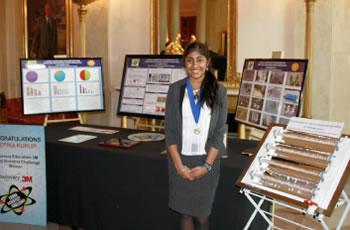
2013 President's Environmental Youth Award (PEYA) Recipient
Deepika Kurup
Nashua, NH
Deepika Kurup, a 15-year-old girl from Nashua, NH, developed a green and sustainable method to purify water. Deepika also helped children and the general public became more aware of clean and safe water as an indispensable natural resource. After much research, Deepika created a way to harnesses solar energy for water purification. Kurup's invention uses two chemicals — titanium oxide and zinc oxide, which, under the influence of sunlight, undergo a chemical change, producing hydroxyl radicals that can attack and destroy certain types of bacteria to disinfect contaminated water. This composite degrades organics and rapidly inactivates bacteria in sunlight, visible light, and even in the dark. Deepika, who has said she was inspired by a vacation trip to India, also has developed several different prototypes for real world application. Deepika has filed a patent for her invention and plans to send her invention to places around the world that are affected by water pollution.
Presidential Proclamation 20th Anniversary of Executive Order 12898 on Environmental Justice
by the President of the United States of America
A Proclamation
Two decades ago, President William J. Clinton directed the Federal Government to tackle a long-overlooked problem. Low-income neighborhoods, communities of color, and tribal areas disproportionately bore environmental burdens like contamination from industrial plants or landfills and indoor air pollution from poor housing conditions. These hazards worsen health disparities and reduce opportunity for residents -- children who miss school due to complications of asthma, adults who struggle with medical bills. Executive Order 12898 affirmed every American's right to breathe freely, drink clean water, and live on uncontaminated land. Today, as America marks 20 years of action, we renew our commitment to environmental justice for all.
Because we all deserve the chance to live, learn, and work in healthy communities, my Administration is fighting to restore environments in our country's hardest-hit places. After over a decade of inaction, we reconvened an Environmental Justice Interagency Working Group and invited more than 100 environmental justice leaders to a White House forum. Alongside tribal governments, we are working to reduce pollution on their lands. And to build a healthier environment for every American, we established the first-ever national limits for mercury and other toxic emissions from power plants.
While the past two decades have seen great progress, much work remains. In the years to come, we will continue to work with States, tribes, and local leaders to identify, aid, and empower areas most strained by pollution. By effectively implementing environmental laws, we can improve quality of life and expand economic opportunity in overburdened communities. And recognizing these same communities may suffer disproportionately due to climate change, we must cut carbon emissions, develop more homegrown clean energy, and prepare for the impacts of a changing climate that we are already feeling across our country.
As we mark this day, we recall the activists who took on environmental challenges long before the Federal Government acknowledged their needs. We remember how Americans -- young and old, on college campuses and in courtrooms, in our neighborhoods and through our places of worship -- called on a Nation to pursue clean air, water, and land for all people. On this anniversary, let us move forward with the same unity, energy, and passion to live up to the promise that here in America, no matter who you are or where you come from, you can pursue your dreams in a safe and just environment.
NOW, THEREFORE, I, BARACK OBAMA, President of the United States of America, by virtue of the authority vested in me by the Constitution and the laws of the United States, do hereby proclaim February 11, 2014, as the 20th Anniversary of Executive Order 12898 on Environmental Justice. I call upon all Americans to observe this day with programs and activities that promote environmental justice and advance a healthy, sustainable future.
IN WITNESS WHEREOF, I have hereunto set my hand this tenth day of February, in the year of our Lord two thousand fourteen, and of the Independence of the United States of America the two hundred and thirty-eighth.
--BARACK OBAMA

Rivanna Natural Designs, Inc.
Green awards for your next green event
At Rivanna Natural Designs, we believe products that express gratitude, reward performance, and celebrate excellence should harm neither the planet nor the people who create, purchase, or receive them. We are honored to create these awards for the EPA's New England Region. The glass for the awards comes from a 100-year-old family-owned artisan glass company in West Virginia that transforms crushed bottle glass. The ebony glass awards are smooth, rich, and sandblast flawlessly. It's difficult to believe they are made from glass dust that would otherwise be considered hazardous waste.
The central principal of our business is that, in its every aspect, our work must reflect our strong obligation to our clients, coworkers, community, and environment. A certified woman-owned business and B Corporation, we participate in a number of voluntary programs aimed at minimizing our environmental footprint, including EPA's Green Power Partnership and EnergySTAR™ for Small Business.
